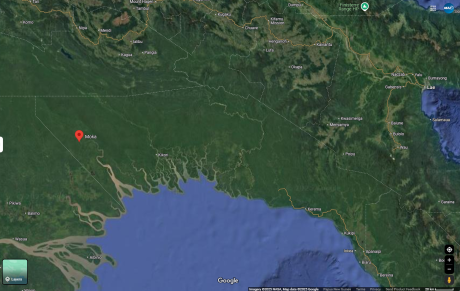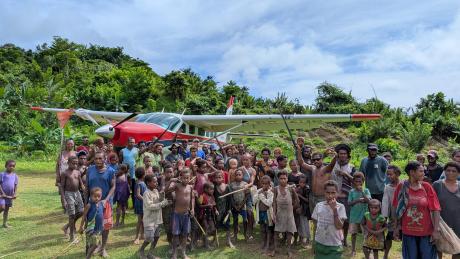
In Papua New Guinea’s Gulf Province, a small community has carved a 516-metre airstrip from the jungle – a new route from the sky for the Gibello family and MAF to bring help, hope and healing.
Story by Mandy Glass
After years of hard labour with nothing but hand tools and prayer, the remote village of Moka now has a viable link to the outside world.
“This airstrip was built with determination and hard work,” said pilot Brandon van Saane after completing the first landing of an MAF aircraft on the grass airstrip.
“With sticks and shovels, the village began with a small clearing that looked like good, flat land, and worked from there.
“And here we are, about 6 years of hard work later — jungle transformed into an airstrip!”
For the people living in Moka, a health emergency… meant a 5–7 day trip on their small boat to reach the nearest hospital in Kikori. By plane, Kikori is a 25-minute flight from Moka.
“We had no machines,” said missionary Caleb Gibello, “so we did everything by hand… cut probably two or three hundred trees with axes. By God’s goodness, not one person got injured.”
Caleb’s wife, Melissa, added, “I was worried about poisonous snakes biting them, or trees falling on a kid… but we didn’t lose one person. That was an answer to prayer.”
This extraordinary achievement marks a turning point for Moka—a village of only three hundred people on the banks of the Turama River, previously accessible only via days-long journeys on rivers and through the jungle.
“Without this airstrip, a health emergency meant a 5–7-day trip by boat to the nearest hospital in Kikori,” said Brandon. “By plane, Kikori is a 25-minute flight from Moka.”
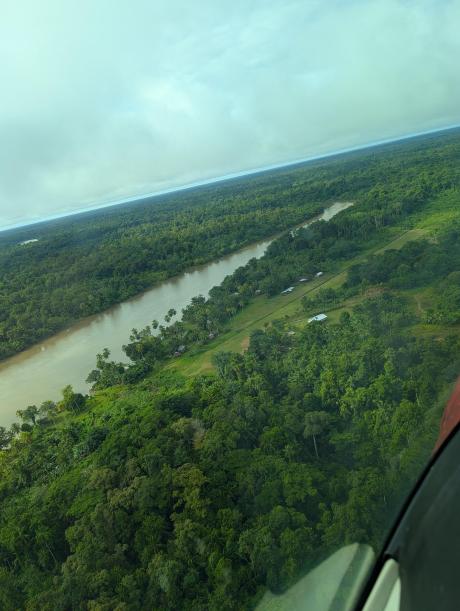
The Gibellos, from the United States, settled at Moka in early 2018 to preach the Gospel to people who had never yet heard the message of Christ before, a mission that Caleb’s grandfather and father already had on their hearts building churches in other remote parts of PNG.
The new airstrip makes their mission sustainable.
“Landing directly in Moka with all our cargo, the most difficult part now is just walking it up a little hill to our house,” Caleb said with a smile.
Before, they had to land in Faia, a now-abandoned logging camp airstrip north of Moka.
“When we flew to the other airstrip, we'd have to carry hundreds of kilos of cargo down to the river on foot, and then put all the cargo in the boat, and then go about two hours or so down the river to our village, hoping that somebody was there with a motor and a boat,” said Caleb.
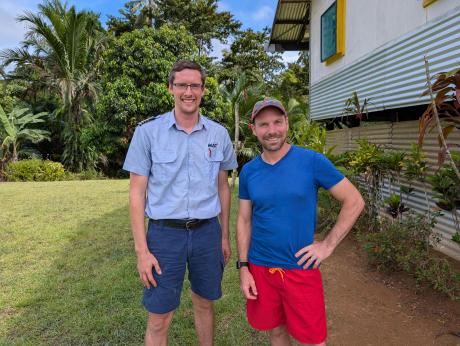
Caleb and Melissa are raising their two children in Moka, committed to the Gospel and the people.
“Our main goal is to preach God's word, to make disciples... not just in the village of Moka, but hopefully in other villages as well,” Caleb said.
They’ve learned the local language, developed a written form of it, and translated several short books of the Bible – with more to follow.
Living in Moka isn’t easy.
“The dangers would be cassowaries, wild pigs and saltwater crocodiles… we’ve lost two people this year to the crocs,” said Melissa. “And there’s the death adder snake that kills many.”
Melissa did a special bush medicine nursing course before coming to live out in the jungle, knowing her skills will benefit the community. Hence, medical supplies are always part of their airfreight.
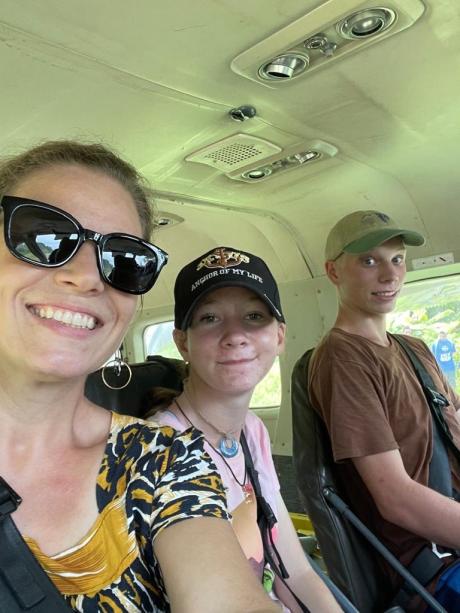
Still, they stay. “To live for the Lord and to live for His Word and His Gospel is a life that is not going to be wasted,” said Caleb.
MAF is a vital link in their ministry now. “We can’t do our ministry without something like MAF. There are no roads into this area—it’s very remote. Without a plane, it couldn’t happen,” Caleb said.
Reflecting on his flight out of Moka, Brandon concluded: “I left Moka feeling very encouraged. It is a privilege to be able to support the work of missionaries like these.”
